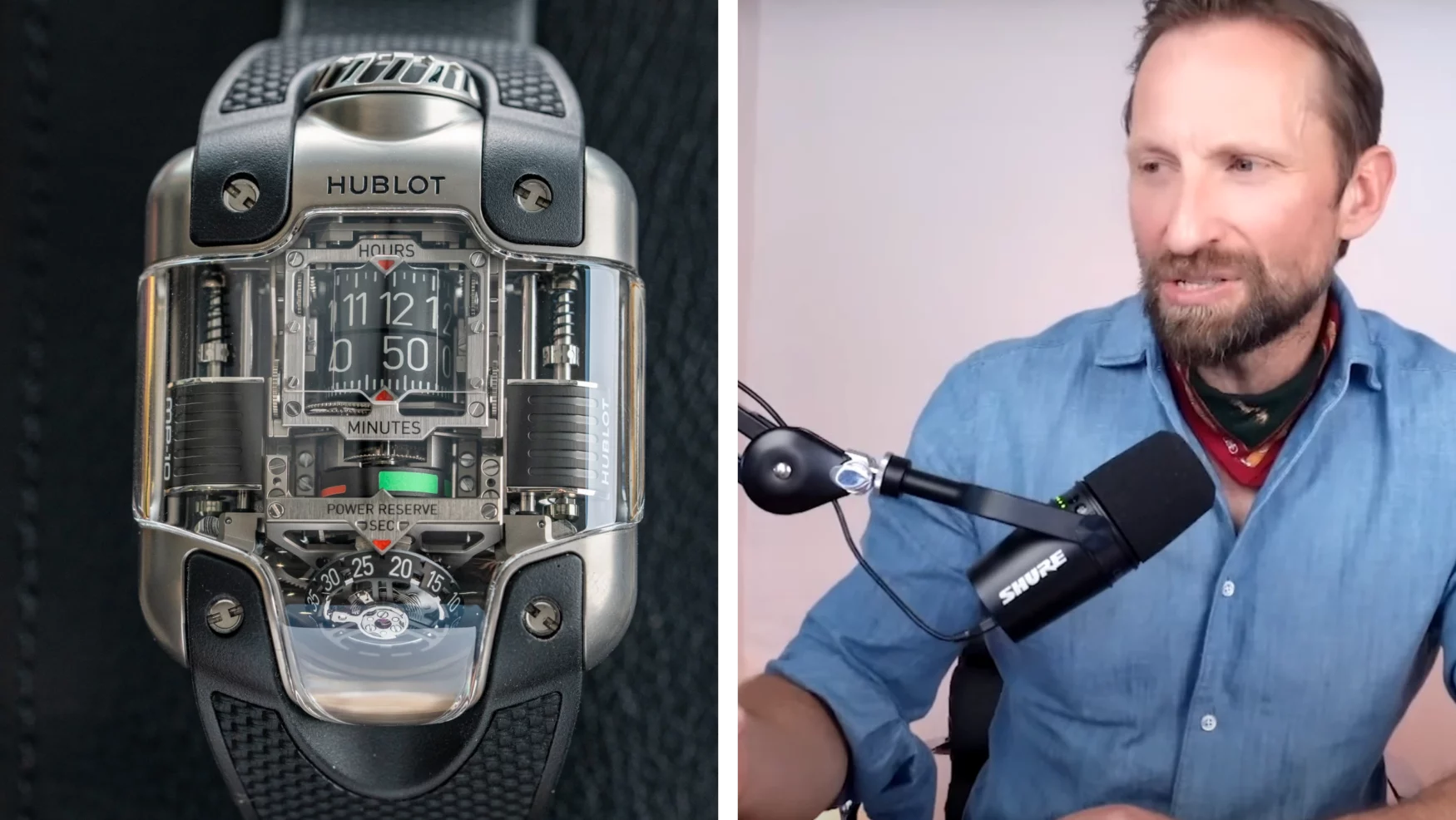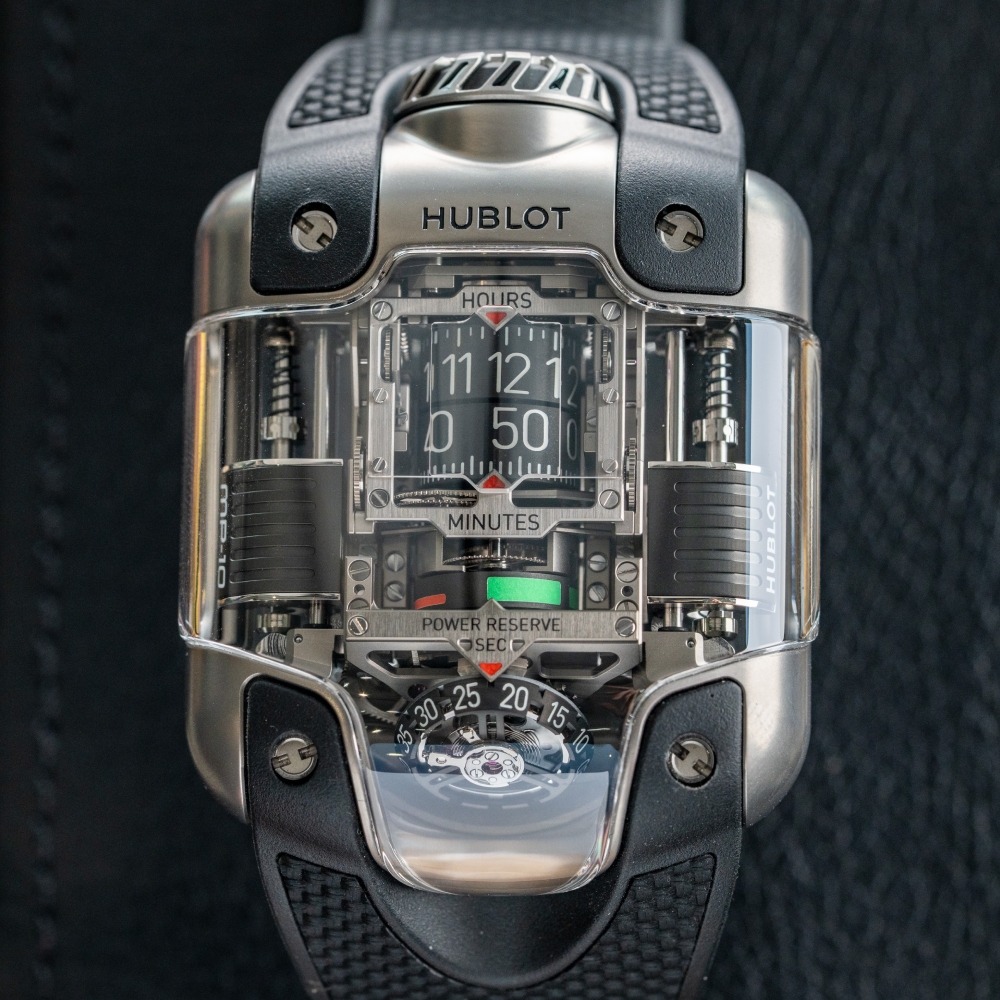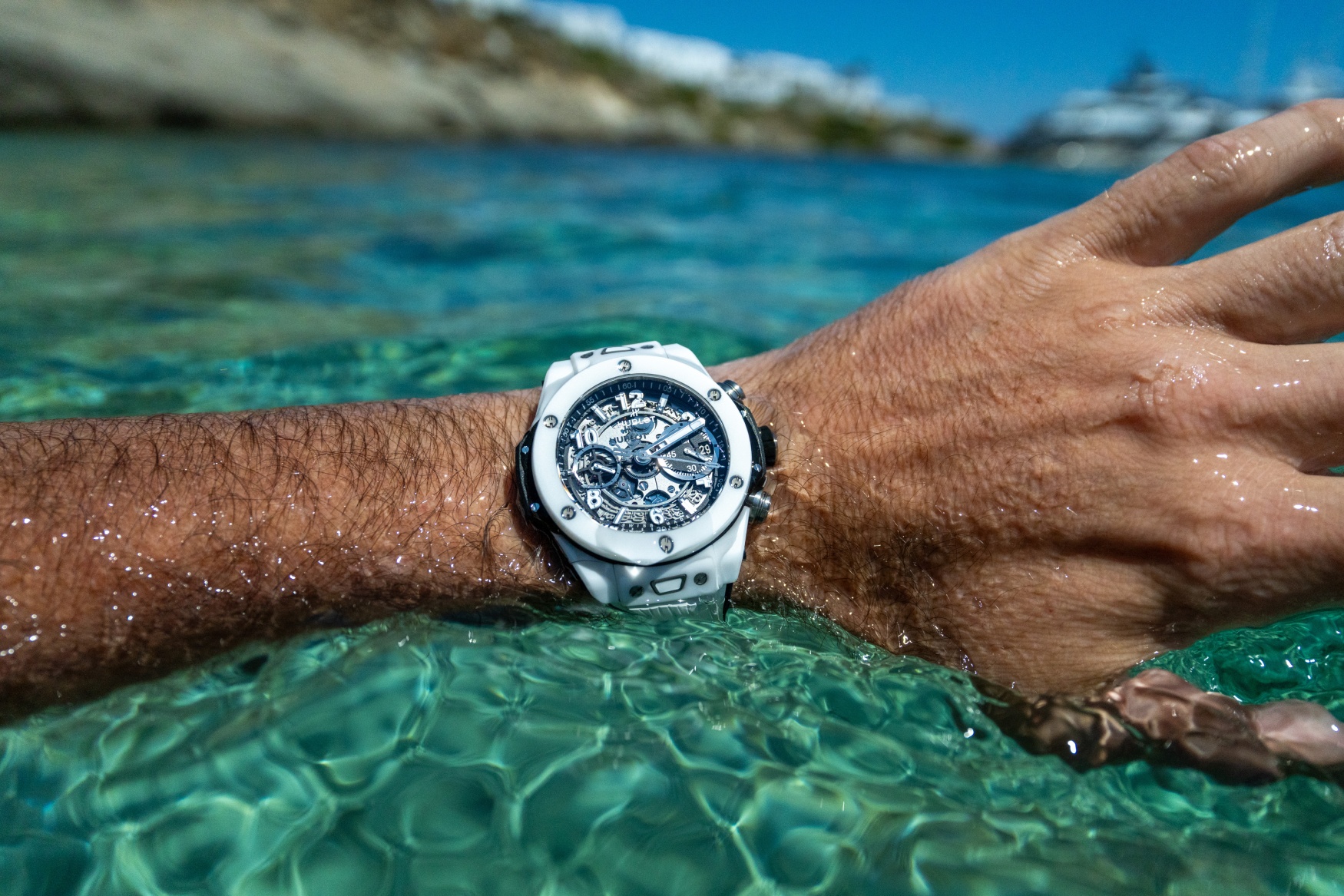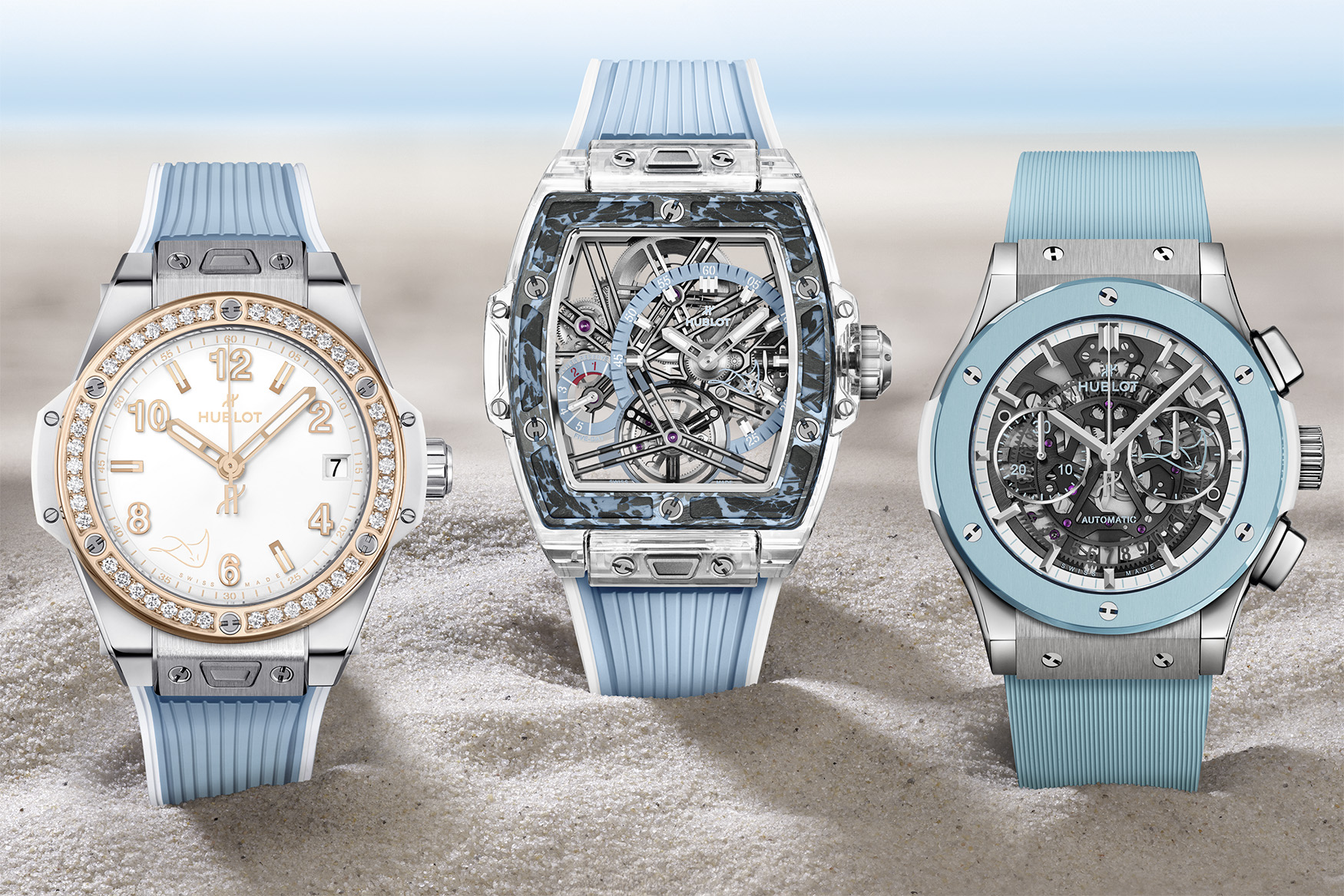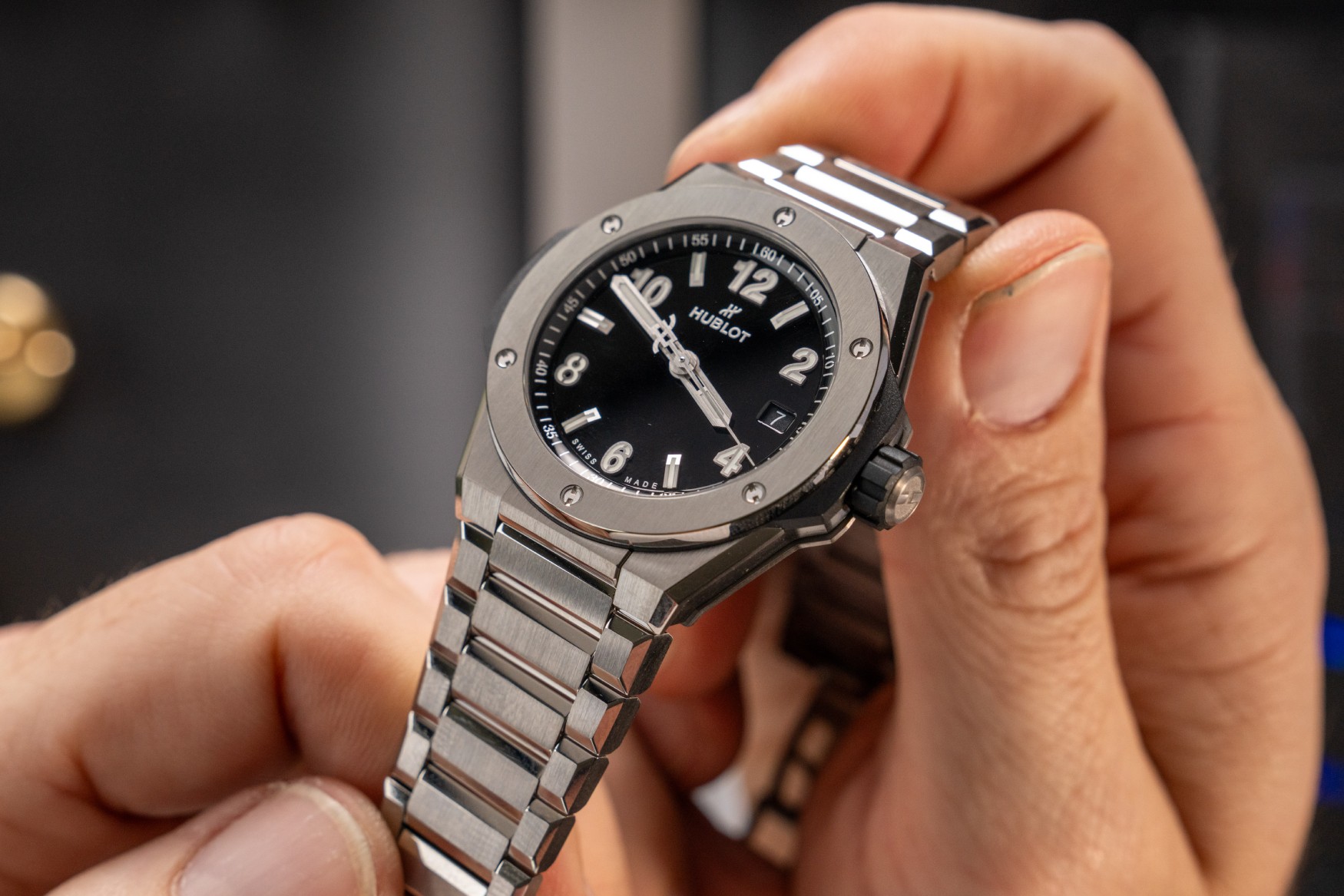Andrew explains Hublot’s price positioning on a recent podcast, and it makes perfect sense
Jamie WeissThis is more of a “Recommended Listening” than a “Recommended Reading”, but nevertheless, it’s something worth tuning into. Our very own Andrew McUtchen will tell anyone who will listen how much of a fan of Hublot he is. Hell, the watch I’ve seen him wear more than any other is his Big Bang White Ceramic (or as he calls it, the “Stormtrooper“) and he has, no doubt, put many people on to the brand who’d never previously considered it, myself included.
However, a common criticism of the Swiss brand is that its price positioning is sometimes hard to wrap one’s head around. On the one hand, when compared to other “hyper watches” – think Richard Mille, Roger Dubuis or Urwerk – Hublot represents reasonable value (as loaded as a term that is). On the other hand, Hublot is a brand that’s been criticised for charging tens of thousands of dollars for watches with off-the-shelf movements. How do you reconcile both those facets of the brand?
Well, as Andrew himself put it to me, he recently had “a rare moment of Hublot clarity and inspiration” while appearing as a guest on The Deep Track, a podcast started by watch industry veteran and GPHG Academy member Blake Buettner. Andrew had his trusty Stormtrooper on his wrist while chatting with the always-affable Blake, and Blake described the Hublot as being “very Andrew”. To which Andrew had this response, connecting his love of Hublot to the way he’s tried to run Time+Tide:
“I own AP, I could wear something that gets me a seat at the cool kid’s table today… [But] I’m wearing Hublot because that is actually my perspective [about watch culture], which is have the courage to wear a watch that isn’t popular in the watch cohort, dare to wear a watch that suits your lifestyle… Put it outside of the matrix of where it sits on the cool wall.”
Andrew then went on to say: “I understand that selling ébauche movements for US$15,000 dollars is bold, and it’s kind of nuts. But they [get] away with it, because they built enough value through their marketing proposition, through their ambassador alignments, through this just power brand. The Jean-Claude Biver touch – he knows how to make you want stuff, and you put your right brain, your analytical brain gets kind of anaesthetised, ‘I want to be a part of that!'”
“I get the criticism from the geeks and from the people that want to break a watch down to its components and then value it and say well, that is the value of the watch. And look, I think it’s interesting to look at a brand like Christopher Ward [or] Code41… They allow you to see how much they pay for the flywheel, for the balance wheel, for the escapement… They break it down into its components and say this is what we paid for everything in this watch. But that’s only one way to come at watch desire. That appeals to the value proposition and the accountant who says ‘how much am I really paying for this?’ But that’s not how desire works.”
“That’s what people are discounting when they break Hublot down to its parts and say ‘oh, it’s a Selita movement’ or ‘it’s an ETA movement’ [or] ‘I could get that movement in a watch for $1,000’. It’s like yeah, but there’s no story or meaning to that brand if the brand that’s selling it hasn’t invested in it. Hublot has spent hundreds of millions of dollars in telling a story that I really like, actually.
The point is that watches are an irrational, emotional investment, and as Andrew puts it, “if there’s an accountant deciding whether a watch is worth the money or not, it’s immediately a doomed exercise.” Listen to the whole podcast to get his unadulterated take on the matter, as well as listen to him share some other brands he’s digging, and a bit of Time+Tide’s past (and future).




